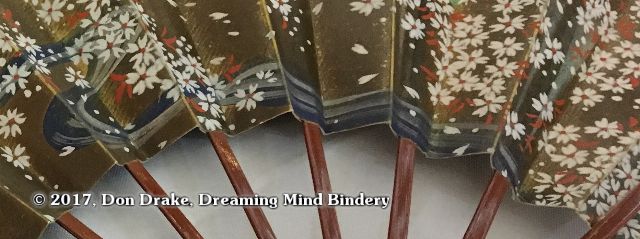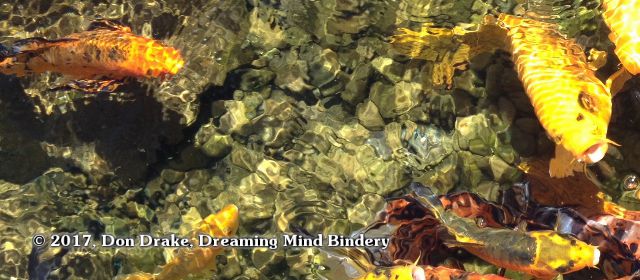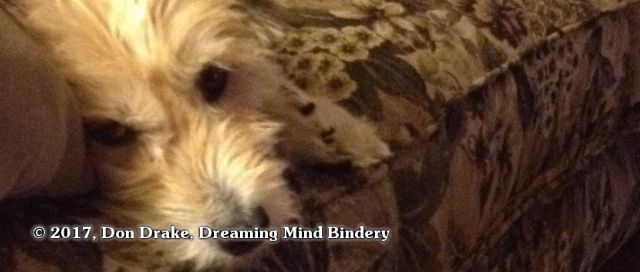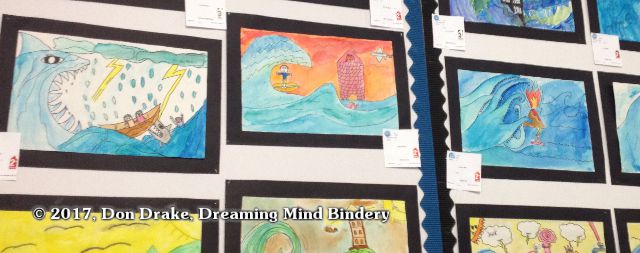
Needing To Choose Implies A Problem
Yesterday, one of my friends showed some images and presented an idea for turning them into a book-art work. Each photo would be paired with a character sketch. Her goal was to create a work of dark humor.
Sounds good! I look forward to seeing it develop. Then came the part that got me thinking and questioning.
During subsequent discussion of this goal with other friends, she said (and I'm paraphrasing based on an imperfect memory of the conversation) that this writing approach was chosen to avoid her more usual approach and outcome. She said that her usual approach tends to turn serious and produces work with a trying-too-hard feel. So, she was opting for these short prose snippets that lean toward humor.
All Art Is Choice
'What's the problem?' you may ask. And with good reason.
This scenario is the most natural in the world. An artist conceives a project, selects from available techniques the ones that will best achieve their goal. Begin work.
It wasn't the decision to choose one writing approach over another that raised my eyebrows. It was the suggestion that the choice was made to avoid a particular expressive problem. If the reason given was that this choice was most appropriate, most interesting, most fun, then this article would not exist.
This Choice Implies A Solution

Before my friend explained the strategy behind her writing choice I was on an entirely different thought-track. I was feeling amazed at the confidence and ambition of her choice. I know from previous conversations that she's made limited her use of text content in her works. And when she has added this content, it was in collaborative works.
This was set to be a powerful step into uncertainty! Thinking about the scope of the problem, I knew I would be intimidated by its magnitude. So I was really excited that I'd have a front row seat for this great challenge.
Beginning in that frame of mind you can understand why I was taken aback when she suggested that this was chosen (at least partially) as a way to avoid a problem. How could the effort to write multiple character sketches that all achieved a tone of 'dark humor' be easier that editing work that came off as a bit strained, pompous, or pretentious (my guesses at what 'trying to hard' might mean)?
Anyone who could achieve this first feat could easily summon the skills to achieve the second.
Sharpening Our Tools
The comparison as I've presented it is not entirely fair. I'm suggesting the character sketch task in its entirety is equivalent to the end-stage editing and fine tuning of some other unspecified writing.
My point is that our ability to write to a specific communication goal is a tool we posses. We can gain skill with this tool through practice. My friend admits to having little practice with this tool. Despite this, she is willing to tackle a project that I recognize as large and hard. Further, she chose this large, hard task to avoid one that I believe to be relatively small and not especially hard.
And whatever their actual magnitudes, both problems will be solved in the same way; hard work and practice with tools of our trade.
A Moment Off The Hook

I've often made pronouncements of reasons for doing this vs that without prior thought on the subject. Or I've asserted my belief in one position vs another off the cuff and without prior conviction. All my friends are familiar with my impulsive, and poorly thought-out policy statements.
I find this rash extemporizing the quickest way to discover what I truly think and believe. It's a process similar to flipping a coin to make an important decision; once the toss comes up heads or tails, I'll have a gut response to the result that tells me what I actually want.
And so my friend might not have actually thought out her reasons. But that does not prevent me from using the moment as a muse.
Choice, Nature and Nurture

There is a deeper question hidden here. In her original framing of the problem, I understood that it was her most natural and automatic voice that tended to give her the results she didn't like. And that this new choice was an effort against this nature.
Whether or not this is a fair characterization of her situation, I recognize it as a true conundrum as an artist working to develop my voice through creative work.
How much can I choose the direction, tone, feel, and purpose of my work? How much should I or must I yield to my 'natural' voice.
I find myself returning to a lesson from my days as a 'working stiff' when I consider these questions. The process of interviewing for jobs was so artificial, I often found myself adapting to the cues and requirements of the short-term interactions in ways that were far outside my core nature. I could never be—in the long run—the person they met in the interview.
This wasn't an effort to lie or deceive. It arose from the fact that in short term interactions, I naturally blend. But in the long run, I have other strategies that come to the fore.
There is no specific answer in this to guide my artistic choices. I work on the general principle that you can fool mother nature, but you can't do it forever.
Individual works of art are relatively short term projects though. So I have the freedom to strike out for goals chosen somewhat randomly and without regard for my nature.
The Land Without Law
Do I have some obligation to myself or my community to find and develop my 'truest' voice? It may be that my happiest and most harmonious path lies in that direction. Even if, paradoxically, my truest voice is that of the contrarian. I may be happiest as a gad-fly.
And what if I find that my most natural artistic voice is generally disparaged as gloomy, or pretentious? Should I moderate it in some way? The answer here really does rest on the answer to the question of my responsibility as an artist.
If I don't like my artwork in some way I am absolutely free to change it. If I don't like the response my work gets, we enter a grey area. Who is this responding audience? Did I solicit this opinion and why? Do I have an obligation to be true to my nature even when unpopular or can I change for greater acceptance?
Questions and uncertainty lay everywhere in this landscape. But it is our land. The bushes, buildings, debris, and material. The rules and results are ours if we have the courage to claim them.